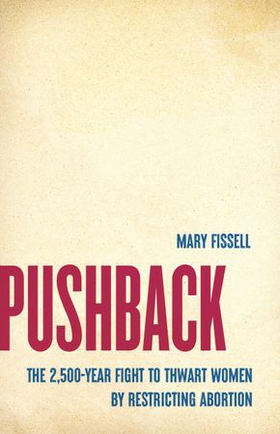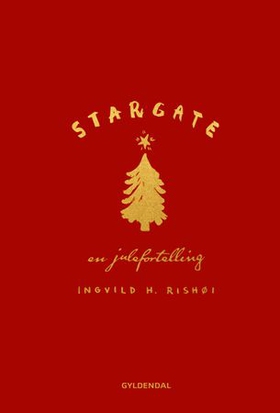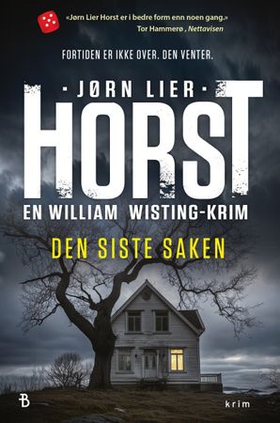
Legg til i ønskeliste
Les gratis utdrag
Pushback ebok
159,-
The revelatory history of how restricting access to abortion has been used to curtail women’s advancement“Fissell is a gifted writer whose keen historical imagination animates her stories of women’s struggle for reproductive control.” —The Times Literary SupplementA Daily Telegraph Best Book of the YearAttitudes about abortion cycle between long periods of widespread tolerance, to repression, and back again. What accounts for these pendulum swings? From ancient Greece to the modern West, histor…
Undertittel
The 2,500-Year Fight to Thwart Women by Restricting Abortion
Forlag
Seal Press
Utgitt
18 januar 2025
Sjanger
Dokumentar og fakta, Historie, Politikk og samfunn
Språk
English
Format
epub
DRM-beskyttelse
LCP
ISBN
9781541604087
The revelatory history of how restricting access to abortion has been used to curtail women’s advancement
“Fissell is a gifted writer whose keen historical imagination animates her stories of women’s struggle for reproductive control.” —The Times Literary Supplement
A Daily Telegraph Best Book of the Year
Attitudes about abortion cycle between long periods of widespread tolerance, to repression, and back again. What accounts for these pendulum swings? From ancient Greece to the modern West, historian of medicine Mary Fissell argues, abortion repression springs up in response to men’s anxieties about women’s increasing independence.
In Pushback, Fissell shows that, across centuries and continents, abortion has always been commonplace, and persecuting women for ending pregnancies has been about controlling their behavior. As Protestantism de-emphasized celibacy, new abortion restrictions policed unmarried women’s sex lives. Nineteenth-century men unsettled by first-wave feminism hoped to establish medicine as a male profession, and so advocated for abortion bans to undercut women’s new roles as physicians. Fissell presents this history through the hidden stories of women committed to reproductive self-determination: holy women of the early Catholic Church whose ability to end pregnancies was considered miraculous, midwives accused of witchcraft or criminal conspiracy, and everyday women whose pregnancies threatened their livelihoods—and their lives.
Pushback is essential reading for understanding the complex history of abortion and making sense of recent crackdowns on reproductive rights.
“Fissell is a gifted writer whose keen historical imagination animates her stories of women’s struggle for reproductive control.” —The Times Literary Supplement
A Daily Telegraph Best Book of the Year
Attitudes about abortion cycle between long periods of widespread tolerance, to repression, and back again. What accounts for these pendulum swings? From ancient Greece to the modern West, historian of medicine Mary Fissell argues, abortion repression springs up in response to men’s anxieties about women’s increasing independence.
In Pushback, Fissell shows that, across centuries and continents, abortion has always been commonplace, and persecuting women for ending pregnancies has been about controlling their behavior. As Protestantism de-emphasized celibacy, new abortion restrictions policed unmarried women’s sex lives. Nineteenth-century men unsettled by first-wave feminism hoped to establish medicine as a male profession, and so advocated for abortion bans to undercut women’s new roles as physicians. Fissell presents this history through the hidden stories of women committed to reproductive self-determination: holy women of the early Catholic Church whose ability to end pregnancies was considered miraculous, midwives accused of witchcraft or criminal conspiracy, and everyday women whose pregnancies threatened their livelihoods—and their lives.
Pushback is essential reading for understanding the complex history of abortion and making sense of recent crackdowns on reproductive rights.






